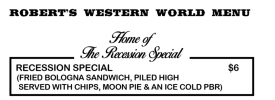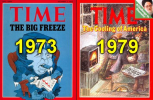TLDR: Oil companies make a lot of money from generating new plastic. Recycling doesn't work for many reasons, big ones being that most plastic is difficult to recycle or can't be recycled, and its cheaper to just create new plastic. These companies have been shifting the burden of dealing with plastic waste to the public through recycling messages, instead what we should be doing in reducing the amount of plastic we use. Hard to do when everything is packaged in plastic.
"A constellation of groups trying to shape the negotiations can be traced back to the oil and gas industry. That includes some of the world's largest oil and gas companies, such as ExxonMobil, Chevron and France's TotalEnergies. And
major oil-producing nations, such as Saudi Arabia, Russia and China, are at the negotiating table. They push a similar message: The problem of plastic pollution can be solved through recycling and other forms of waste management rather than through substantial cuts in new plastic production.
But years of research and investigations,
including by NPR, have shown that recycling is failing to rein in plastic waste. Reducing how much new plastic gets made in the first place is a "prerequisite" to getting pollution under control, says Carsten Wachholz, who works at the Ellen MacArthur Foundation and co-leads the Business Coalition for a Global Plastics Treaty."
"Laura Leebrick, a manager at Rogue Disposal & Recycling in southern Oregon, is standing on the end of its landfill watching an avalanche of plastic trash pour out of a semitrailer: containers, bags, packaging, strawberry containers, yogurt cups.
None of this plastic will be turned into new plastic things. All of it is buried.
"To me that felt like it was a betrayal of the public trust," she said. "I had been lying to people ... unwittingly."
Rogue, like most recycling companies, had been sending plastic trash to China, but when China shut its doors two years ago, Leebrick scoured the U.S. for buyers. She could find only someone who wanted white milk jugs. She sends the soda bottles to the state.
But when Leebrick tried to tell people the truth about burying all the other plastic, she says people didn't want to hear it.
"I remember the first meeting where I actually told a city council that it was costing more to recycle than it was to dispose of the same material as garbage," she says, "and it was like heresy had been spoken in the room: You're lying. This is gold. We take the time to clean it, take the labels off, separate it and put it here. It's gold. This is valuable."
But it's not valuable, and it never has been. And what's more, the makers of plastic — the nation's largest oil and gas companies — have known this all along, even as they spent millions of dollars telling the American public the opposite."









